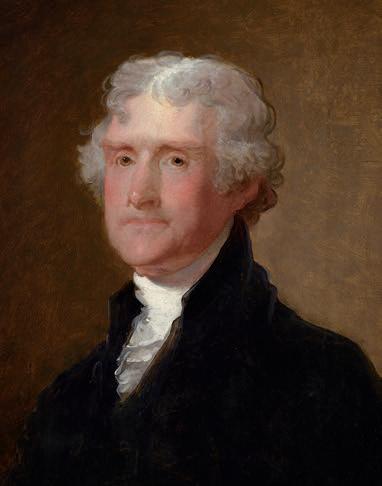
Located off the Gulf of Mexico, New Orleans controlled entrance to the Mississippi River. And the Mississippi River controlled trade and transportation in the interior of North America. Jefferson did not want a foreign country controlling the fate and future growth of the United States.
In December 1803, the United States purchased France’s entire Louisiana territory. The deal included New Orleans and a vast expanse of land that extended west of the Mississippi River. It doubled the size of the United States.
Jefferson had long been curious about what might be found in those western lands. In the early 1800s, most Americans lived east of the Mississippi River. Jefferson appointed his secretary, Meriwether Lewis, to lead an expedition into the new Louisiana Purchase.
Lewis and his co-captain, William Clark, set out with the men chosen for their Corps of Discovery in the spring of 1804. Jefferson asked the men to look for a water route from the Missouri River to the Pacific Ocean. He encouraged them to learn about the Indigenous peoples and to note plants and animals. He also hoped the expedition would strengthen U.S. claims to the rich farmlands of the Pacific Northwest.
Americans knew about the Pacific Northwest because of its role in the North American fur trade. The trade had started between the Indigenous peoples and the first European explorers in the early 1600s. The pelts of fur-bearing animals in North America were turned into desirable warm clothing and hats in Europe. The trade developed into an enormously profitable industry. In their search for animals to meet the demand, fur trappers had reached the Pacific Coast. In 1792, American ship captain Robert Gray had sailed to the mouth of the Columbia River and claimed it for the United States.
Bu hikaye Cobblestone American History Magazine for Kids dergisinin October 2023 sayısından alınmıştır.
Start your 7-day Magzter GOLD free trial to access thousands of curated premium stories, and 9,000+ magazines and newspapers.
Already a subscriber ? Giriş Yap
Bu hikaye Cobblestone American History Magazine for Kids dergisinin October 2023 sayısından alınmıştır.
Start your 7-day Magzter GOLD free trial to access thousands of curated premium stories, and 9,000+ magazines and newspapers.
Already a subscriber? Giriş Yap
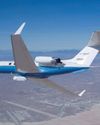
Eye in the Sky
An interview with Joe Piotrowski
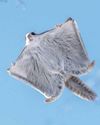
Airborne Animals
Humans have taken to the skies in balloons, gliders, and airplanes-but we're not alone among the clouds. Animals of all sorts have evolved to harness wind power.
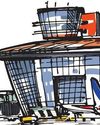
TAKING OFF
The Wright brothers expected airplanes to “take off,” but even they might be amazed at the way the airline industry has become big business. In the past, it was expensive to send something by plane.

GROWTH OF AN INDUSTRY
After their historic flight at Kitty Hawk in 1903, Wilbur and Orville Wright returned to Dayton, Ohio. They spent the next few years making adjustments and building additional versions of their powered aircraft in their bicycle shop.
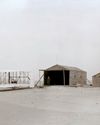
WHY KITTY HAWK?
The Wright brothers searched carefully for the best place to test their gliders and flying machines. Their main concern was for good, steady winds. But they also hoped to find a remote location to allow them to perform tests away from the public eye.
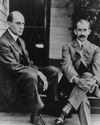
Two Brothers From Ohio
Most people do not realize that the Wright brothers—Wilbur, born in 1867, and Orville, born in 1871—performed various scientific experiments before inventing their aircraft. For as long as anyone in their hometown of Dayton, Ohio, could remember, the Wright boys had worked on mechanical projects.
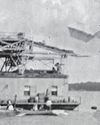
A Helping Hand
May 6, 1896. A group of people who had gathered beside the Potomac River, just south of the U.S. capital, grew quiet. Then, it erupted in cheers as a small, unmanned aircraft took to the skies and flew for more than half a mile. The flight came seven years before the Wright brothers’ first manned, powered flight. The inventor of the aircraft was Dr. Samuel Pierpont Langley.
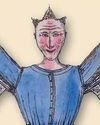
THE IDEA MEN
People dreamed of flying thousands of years before the Wright brothers found success near Kitty Hawk, North Carolina. These dreamers, such as Leonardo da Vinci, studied birds flying and imagined how humans might do the same—if only they had wings. Other men developed a more hands-on approach to the topic. Early inventors made wings of cloth, glue, and feathers and tied these creations to their arms in an attempt to imitate nature.
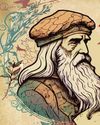
Da Vinci's 4 Designs
Have you ever wondered how a bird flies? Leonardo da Vinci (1452–1519) did. He thought that understanding how a bird flies would provide the key to human flight. So, what did da Vinci learn from birds?
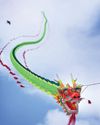
Silken Wings
Seven hundred years before the Wright brothers began experimenting with human flight, the Chinese had already mastered its secrets—with kites.